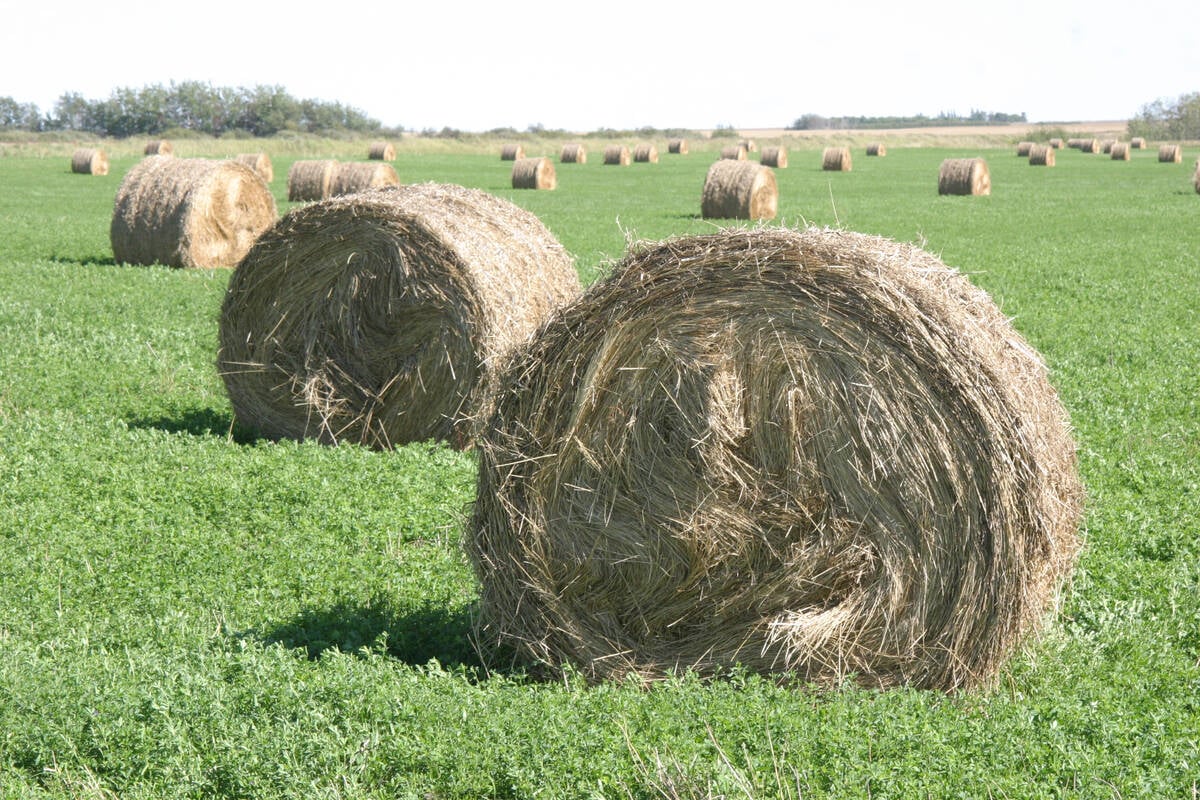BANFF, Alta. – When it came to debating wheat board reform, agriculture ministers from Alberta and Saskatchewan couldn’t get much farther apart.
With Alberta’s Walter Paszkowski stressing dual markets and and Eric Upshall of Saskatchewan staunchly defending the board’s monopoly position and reputation, barley growers gathered in Banff got an earful.
At this convention of the Western Barley Growers Association, discussion of recent events like court challenges to the board and last fall’s wheat and barley plebiscite raised issues they had all heard before.
In the four-way debate among agriculture ministers, Paszkowski defended the wording of Alberta’s plebiscite questions, which some critics said guaranteed a “yes” vote. The yes side won by about 60 percent of the 15,000 farmers who voted.
Read Also

Breaking down successful winter feeding into six steps
It’s that time of year when it is important to start planning for a cow herd’s winter feeding program. Here are six steps I think are necessary to consider when getting your feed tested.
“The producers have identified what they want and it’s my responsibility to carry those wishes on. I commit to you that I will be there,” said Paszkowski.
Referring to the six-week period several years ago when anyone could export barley without a wheat board permit, he said, “we’ve seen the actual open market perform and it was very, very successful.”
Saskatchewan’s Upshall said a dual grain market would ring a death knell for the wheat board. He supports reform but doesn’t want to do away with the board’s legal monopoly position to sell wheat and barley for export.
Nor does his province need a vote on the issue.
“We have enough proof that the board is doing a good job but there are still areas where we need to challenge them,” he said.
Upshall’s criticism of the semantics of the Alberta plebiscite questions drew an angry response from the crowd.
“I thought that the language used in the Alberta plebiscite was not fair language. When you use the terms, ‘freedom to sell,’ you get a positive response,” said Upshall.
Farmer Marvin Fowler of Calgary countered, “You insult the intelligence of every Alberta farmer when you question the wording of the plebiscite. Every one of us knew exactly what the words meant.”
Reform agriculture critic Elwin Hermanson was with Paszkowski in the debate. He wants changes and more open market opportunities for farmers without dismantling the board.
He said about 10 percent of prairie producers want the board scrapped, 30 percent want it left as is, and the rest want changes.
“That’s the category I’m in. That’s where the majority of producers are,” said the Saskatchewan MP.
Hermanson’s concern is direct government control over the board. He said this makes it a closed shop and almost impossible to get changes or information about its internal deals.
Representing the federal government, Lyle Vanclief, parliamentary secretary to agriculture minister Ralph Goodale, agreed farmers want reform. He pointed out changes won’t please everyone.
“There’s no question that the marketing system in Western Canada today for grain is not doing as much for as many, as many people think it could,” Vanclief said.
He also added he and Goodale respect the results of the plebiscite but don’t necessarily agree with it.
“The minister has not ruled out the possibility of a prairie-wide vote. What he has done … is put in place the western grain marketing panel to ensure that all farmers get the opportunity to express their views on this board issue,” he said.
There was criticism and cynicism from the floor for the format of the grain marketing panel and the recent academic study of wheat board operations.
Some voiced suspicions that the board interfered in the panel’s work by holding in-camera meetings with select groups before the town hall meetings. Others questioned the research methods of the study conducted by three agriculture economists from Alberta, Saskatchewan and Manitoba.















